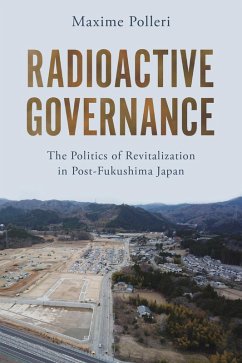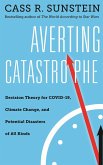Examines the aftermath of the Fukushima nuclear disaster
The 2011 Fukushima Dai'ichi nuclear disaster was the worst industrial nuclear catastrophe to hit Japan. It was a major event, rated at the highest severity, which released radioactive elements into the power plant's surrounding environment when back-up systems failed and could not sufficiently cool the nuclear reactors. At least 164,000 people were permanently or temporarily displaced.
Radioactive Governance offers an ethnographic look at how the disaster was handled by Japan. Unlike prior nuclear-related narratives, such as those surrounding Chernobyl or Hiroshima, which focused on themes of harm, trauma, and victimization, the Japanese government consistently put forward a discourse of minimal or no radiation-related dangers, a gradual bringing home of former evacuees, a restarting of nuclear power plants, and the promotion of a resilient mindset in the face of adversity. This narrative worked to counter other understandings of recovery, such as those of worried citizens unsuccessfully fighting for permanent evacuation because they were afraid to go back to their homes.
Providing a rich theorization of how both governments and citizens shape narratives about catastrophic events, Radioactive Governance not only displays how Fukushima became a story of hope and resilience rather than of victimization, but also how radioactive governance shifted from the nuclear secrecy that characterized the Cold War era to relying on international organizations and domestic citizens to co-manage the aftermath of disasters.
The 2011 Fukushima Dai'ichi nuclear disaster was the worst industrial nuclear catastrophe to hit Japan. It was a major event, rated at the highest severity, which released radioactive elements into the power plant's surrounding environment when back-up systems failed and could not sufficiently cool the nuclear reactors. At least 164,000 people were permanently or temporarily displaced.
Radioactive Governance offers an ethnographic look at how the disaster was handled by Japan. Unlike prior nuclear-related narratives, such as those surrounding Chernobyl or Hiroshima, which focused on themes of harm, trauma, and victimization, the Japanese government consistently put forward a discourse of minimal or no radiation-related dangers, a gradual bringing home of former evacuees, a restarting of nuclear power plants, and the promotion of a resilient mindset in the face of adversity. This narrative worked to counter other understandings of recovery, such as those of worried citizens unsuccessfully fighting for permanent evacuation because they were afraid to go back to their homes.
Providing a rich theorization of how both governments and citizens shape narratives about catastrophic events, Radioactive Governance not only displays how Fukushima became a story of hope and resilience rather than of victimization, but also how radioactive governance shifted from the nuclear secrecy that characterized the Cold War era to relying on international organizations and domestic citizens to co-manage the aftermath of disasters.
Dieser Download kann aus rechtlichen Gründen nur mit Rechnungsadresse in A, D ausgeliefert werden.









